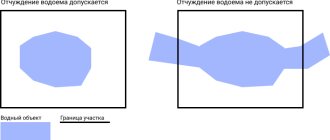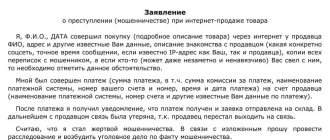Rosreestr is trying to eliminate the legal gap in the Land Code. The department has developed a procedure for conducting an electronic auction for the right to conclude a contract for the sale or lease of state land - due to its absence, government agencies are now effectively deprived of the opportunity to conduct auctions in this form. As planned by Rosreestr, a new procedure for this area will be introduced gradually - until January 1, 2023, a transition period will be established, after which the electronic form of the auction will become mandatory.
Rosreestr has developed a procedure for conducting electronic auctions for the provision of land plots that are in state or municipal ownership; the agency published draft amendments to the Land Code on regulation.gov.ru. It should be noted that the possibility of holding electronic auctions for the right to conclude a contract of sale or lease of a plot of land has been formally provided for since 2015, but the procedure has not yet been established by law, so government agencies are actually unable to conduct auctions in this form.
A year ago, deputies made an attempt to solve the problem, but their bill stalled at the first reading stage. On the part of the government, as they say in Rosreestr, “there has not yet been a similar bill, since previously the Ministry of Economy proposed to develop a unified law on electronic trading - a similar approach was proposed by the Federal Antimonopoly Service.” The idea of developing a separate procedure was returned against the backdrop of the “corona crisis” - its adoption is provided for in the National Economic Recovery Plan.
As follows from the bill prepared by Rosreestr, electronic auctions for the sale or lease of state land will be held on sites already selected by the government for public procurement.
There, as well as on the official website of the government agency, notices about the electronic auction will be published - participants will be able to submit their applications through the operator. Participants' proposals during the auction will be expected within 10 minutes - when bids are received to increase the price, the countdown begins again, and if they are absent, the auction ends. Within an hour after the end of the auction, a protocol is posted on the site, on its basis an agreement is concluded with the winner, which the parties sign with a qualified electronic signature.
The bill proposes to revise the terms of the contract concluded with the auction participant who made the second price offer if the winner avoided signing the document. Now government agencies offer such a participant to conclude an agreement at the price of the original winner - as noted in Rosreestr, this approach contradicts the principle of competition among auction participants. Moreover, the department adds, in forestry and water legislation, in such cases, contracts are concluded at the price offered by this particular participant; Rosreestr proposes to use a similar rule when conducting auctions (not only electronic) in relation to land plots.
The new auction procedure will be introduced gradually; government agencies will be able to independently choose either a paper or electronic auction form until January 1, 2023.
After this date, the use of the electronic form will become mandatory, with the exception of auctions for the provision of plots to citizens for individual housing construction or private farming, as well as to farms for their activities.
Land for housing construction
The procedure for providing state or municipally owned land plots for housing construction is determined by law. However, many controversial issues remain. For example, what should be understood by performing the procedure for selecting a land plot? What is the procedure for forming lots at an auction? The answers are in our article.
How to get a plot? The provision of land plots for construction from lands in state or municipal ownership is carried out with work on their formation.
In this case, the location of the object can be pre-agreed or not (Article 30 of the Land Code of the Russian Federation). When choosing any of these two options, it is necessary to take into account the requirements of land legislation regarding the legal regime of the land plot that is supposed to be used for construction. IF THE LAND WAS NOT PROVIDED FOR CONSTRUCTION The procedure established by Article 30 of the Land Code of the Russian Federation also applies in situations where the land plot was initially provided for use for other purposes. This is possible if the owner of the site subsequently decides to locate a capital construction project.
In this case, he needs to initiate the procedure for providing a land plot in the manner prescribed by law. In this case, it is advisable to take into account one of the requirements contained in paragraph 3 of Article 31 of the Land Code of the Russian Federation.
We are talking about mandatory informing the local population about the upcoming or possible provision of a land plot for construction, which is entrusted to local governments (Resolution of the Presidium of the Supreme Arbitration Court of the Russian Federation dated June 15, 2005 No. 2479/05). SINCE WHEN ARE THE STANDARDS IN EFFECT? The legal requirement to provide land plots for housing construction for ownership or lease at auctions has been in effect since October 1, 2005. Moreover, if, in accordance with the Land Code of the Russian Federation, the procedures for selecting a land plot for construction have been partially or fully completed, but before October 1, 2005, a decision has not been made on preliminary approval of the location of the facility, such a plot cannot be provided for housing construction in rental or ownership without an auction.
Federal Law No. 232-FZ of December 18, 2006 extended these provisions to legal relations that arose from October 1, 2005. In connection with this, a controversial point is the question of what should be understood as the implementation of the procedure for selecting a land plot for construction.
For example, on September 1, 2005, the city commission for land allocation issued a permit letter to a construction organization to collect technical conditions for connecting a capital construction project to engineering support systems. The decision on preliminary approval of the location of the facility on a specific land plot was made by the municipality only on December 26, 2006.
In this case, the court concluded that the procedure for selecting a land plot for construction was initiated after October 1, 2005. Thus, the land plot could not be leased for housing construction without an auction, and therefore the administration’s decision was made in violation of land legislation and is subject to invalidation (Resolution of the Federal Antimonopoly Service of the Ural District dated May 26, 2008 No. F09-3578 /08-С6).
But in the ruling of the Constitutional Court of the Russian Federation dated April 1, 2008 No. 388-О-О it is stated that the federal legislator established a sufficient - many-month - transition period, during which all previously initiated procedures for the provision of land plots without bidding must be completed . TYPE OF LAND USE When providing a land plot for construction purposes, an important point is the issue of compliance with the requirements of the established type of use of the land plot.
Indeed, even in a situation where a capital construction project is built in compliance with building codes and regulations, the question may arise about the legality of placing this facility on a land plot. Thus, it is necessary to establish which category of land the resulting land plot belongs to. In the case of provision for construction purposes of a plot belonging to the category of land that is not intended for the placement of objects, for example, housing construction, the relevant authority may demand that the entire procedure for its provision be invalidated.
An example of this is the Resolution of the Presidium of the Supreme Arbitration Court of the Russian Federation dated May 13, 2008 No. 14910/07. It addresses the following controversial situation. The prosecutor appealed to the arbitration court with demands to invalidate the resolutions of the municipality, which had first previously agreed upon and then leased the land plot to the organization. The requirements were based on the fact that the disputed land plot is located within the boundaries of a national park. The courts refused to satisfy the demands, finding that, according to the cadastral plan, this site is part of the settlement lands. Therefore, its belonging to the lands of other users belonging to the territory of the national park is considered unproven. The courts also found that the construction of a capital facility was carried out with the receipt of the necessary permission. Conducting auctions Land plots for housing construction are provided for ownership or lease at auctions (Article 30.1 of the Land Code of the Russian Federation). An exception is the provision of land plots for housing construction to persons with whom a state or municipal contract has been concluded for the construction of real estate.
Moreover, in this case, construction must be carried out entirely at the expense of the federal, regional or local budget on the basis of an order placed in accordance with the law on the placement of orders for state or municipal needs. These persons are provided with the specified plots for free, fixed-term use without bidding for the period of construction. WHY IS THE TYPE OF LAND USE DETERMINED? The ruling of the Constitutional Court of the Russian Federation dated November 6, 2003 No. 387-O states that establishing the type of use of the territory (permitted use) is necessary to harmonize state, public and private interests in the field of urban planning activities in order to ensure favorable living conditions.
These interests are respected by following the requirements of regulatory legal acts and urban planning rules, as well as monitoring their implementation.
ORGANIZATION OF TRADES
The procedure for holding auctions is regulated in detail by the “Rules for organizing and conducting auctions for the sale of land plots in state or municipal ownership...”. In accordance with the above Rules, bidding is open in terms of participants and is held in the form of an auction or competition. In this case, the auction can be open or closed in the form of submission of proposals on the price or amount of rent.
The rules were approved by Decree of the Government of the Russian Federation of November 11, 2002 No. 808. Notice of the auction must be published in the media at least 30 days before the date of the auction. To participate in the auction, the applicant submits an application and other necessary documents to the auction organizer (personally or through his representative) within the deadline established in the notice of the auction.
The auctions are held at the place specified in the notice of the auction, on the appropriate day and time. It should be noted that at the level of federal legislation the question of what is the procedure for the formation of lots at an auction is not regulated. Therefore, local government bodies have the right to form them independently, taking into account the requirements of the Urban Planning Code of the Russian Federation and architectural and urban planning policy. As an example, let us cite the resolution of the Federal Antimonopoly Service of the West Siberian District dated July 26, 2007 No. F04-5131/2007 (36795-A81-23).
The winner of the auction is the bidder who offers the highest price or the highest rental amount. In the event of a tie, the bidder whose bid was submitted first wins. REGISTRATION OF THE RESULTS The results of the auction are documented in a protocol, which is the basis for concluding a purchase and sale or lease agreement for a land plot with the winner of the auction. The agreement must be concluded no later than five days from the date of signing the protocol. THE AUCTION IS RECOGNIZED AS NOT HAPPENED If the auction is declared invalid due to the participation of less than two participants, the only participant, no later than ten days after the day of its holding, has the right to enter into a purchase and sale agreement for the land plot put up for auction or a lease agreement for it.
Accordingly, the state authority (local government), by whose decision the auction was held, is obliged to conclude an agreement with the only participant at the starting price of the auction. If such an agreement has not been concluded, its organizer has the right to announce a repeat auction (clauses 27, 28, article 38.1 of the Land Code of the Russian Federation).
Thus, the current land legislation provides for a procedure by which a specific entity that took part in the auction can become the owner of a land plot for construction purposes.
Therefore, we can conclude that obtaining the right to lease a land plot intended for housing construction in any other way contradicts the current Land Code of the Russian Federation. This is confirmed by Resolution of the Presidium of the Supreme Arbitration Court of the Russian Federation dated June 24, 2008 No. 3351/08. It deals with the controversial situation that arose after the auction was declared invalid. In particular, the deputy prosecutor filed a claim with the Arbitration Court of the Kemerovo Region to invalidate the agreement on the transfer of rights and obligations acquired as a result of the auction for the sale of the right to conclude a lease agreement for a land plot. As established by the court, on the basis of an order from the head of the municipality, an open auction was held to sell the right to conclude a lease agreement for a land plot for its comprehensive development for the purpose of housing construction.
Due to the receipt of a single application from the organization to participate in the auction, the auction was declared invalid. According to the protocol summing up the results of the auction, the only participant was asked to conclude a land lease agreement within 10 days. However, as a result, the body authorized to conduct the auction and the only participant signed a purchase and sale agreement for the right to conclude a lease agreement. Then, by agreement, the rights and obligations acquired by the previous copyright holder as a result of the auction were transferred in full to the new copyright holder. As a result, a land lease agreement was concluded with the new copyright holder. The person who took part in the auction dropped out of these legal relations. The courts of appeal and cassation came to the conclusion that there was no violation of the current legislation and refused to satisfy the stated demands.
The Presidium of the Supreme Arbitration Court of the Russian Federation, canceling these judicial acts, indicated that since the auction did not take place due to the presence of one application, the land lease agreement could only be concluded with the auction participant. An agreement on the assignment by an auction participant of the right to conclude a lease agreement for a land plot to another organization is aimed at obtaining this right outside the auction. And this contradicts the norms of land legislation and therefore, by virtue of Article 168 of the Civil Code of the Russian Federation, is void.
WHEN ARE TRADES RECOGNIZED AS VOID? The auction for each auction item is considered invalid if: - less than two participants took part in the auction; - none of the bidders during an auction open according to the form of submitting proposals for the price or the amount of rent, after the initial price or the initial amount of rent was announced three times, raised their ticket; - none of the bidders during a competition or auction that was closed according to the form for submitting proposals on the price or amount of rent, in accordance with the decision of the auction organizer, was recognized as the winner; — the winning bidder avoided signing the protocol, concluding a purchase and sale agreement or renting a plot. The auction organizer is obliged, within three banking days from the date of signing the protocol on the results of the auction, to return the deposit made by the participants in the failed auction. The winning bidder who evaded signing the protocol on the results of the bidding, concluding a purchase and sale agreement or leasing a land plot will not be refunded the deposit.
Participation in the auction
To become a bidder, you must contact the municipality or go to the administration website. There you can find out information about when the auction will be held and when applications will be accepted. It is necessary to submit an application and a civil passport in advance. A receipt for payment of 10% of the initial cost of the lot is also provided.
The exact date of the auction is provided. All participants receive notice of the time and location 30 days before the start of the auction. At the same time, an auction of land plots for individual housing construction will be organized if there are at least two applications. If only one bidder is interested in the property, he buys it at the initial price.
If the participant expects that quite a lot of people may take part in the auction, it is necessary to have sufficient funds. The bidding step can vary significantly, starting from 50,000 rubles and ending with 150,000 rubles. It depends on the number of applications. In this case, the initial cost is usually set at 2.5%. Therefore, participants can lift it quite strongly.
After the auction, the winner must pay the full price. Without this, it is impossible to obtain property. Then documents on the transfer of land are drawn up.
Participation in auctions
The auction cannot begin unless at least two prepaid bids have appeared. Registration of participants ends 5 days before the scheduled trading date. The Land Code of the Russian Federation contains comprehensive information on how to take part in a land auction. To do this, you must submit a properly completed application in advance, provide a receipt for payment of the deposit and the required documents.
The following categories will not be able to take part in the auction:
- legal entities about which there is no current information in the Unified State Register of Legal Entities;
- citizens who do not have the right to register land ownership legally;
- applicants who have not provided the full package of documents required for registration as a participant;
- persons who expressed a desire to participate, but did not make a deposit in the amount of 10% of the initial cost of the lot;
- persons who have made an insufficient deposit.
Required documents
In order not to be immediately refused participation, you must provide a complete package of documents. It includes a small list:
- citizen's passport from individuals;
- application of the established form;
- receipt for a deposit in the amount of 10% of the declared initial cost.
The application must contain information about the applicant and account details where the deposit should be returned in case of loss. If a legal entity plans to participate in the auction, statutory and registration documents, a power of attorney and a passport of the representative are provided.






